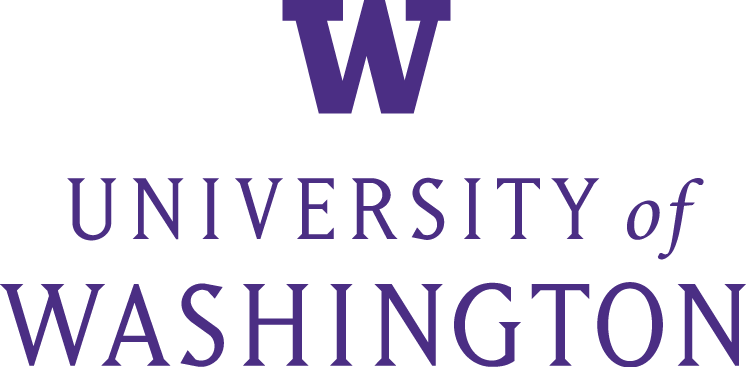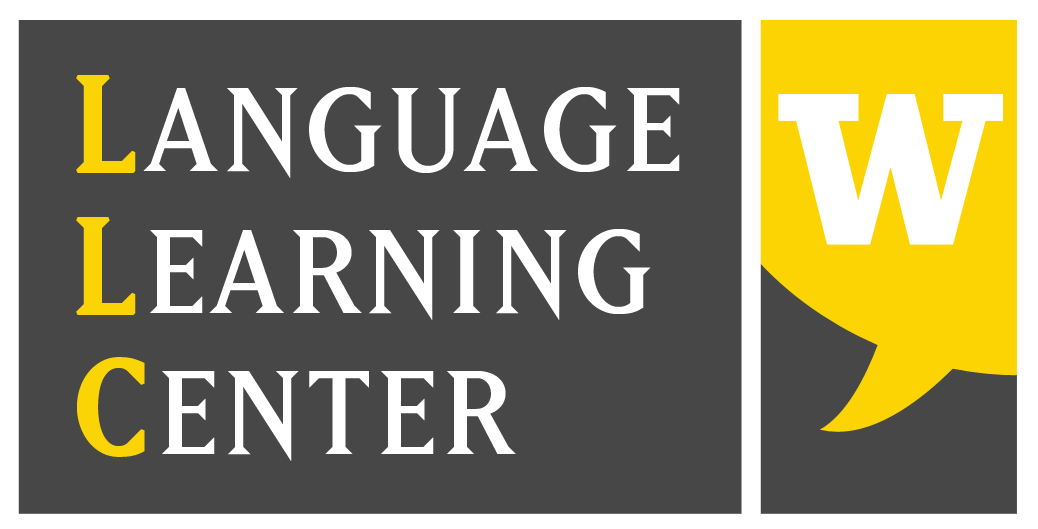2021 Heritage Language Symposium
Below are resources that were available to watch before and during the half-day live Symposium (on February 20, 2021). Below are some excellent recordings of sessions relevant to Heritage Language Learners.
Recorded Sessions
Table of Contents
Heritage Language Sessions
- Heritage Language Speakers Can Earn The Global Competence Certificate And Global Seal Of Biliteracy
- Heritage-based Community Language Schools: The Hidden Treasure In Our Neighborhoods
- Bulgarian Language Beyond Borders | Global Seal - Българският Език Извън Граници | Глобален Печат
- Project-based Language Learning: Making Language Come Alive In The Classroom
- Myths And Realities About U.s. Spanish
- My "Why Hebrew?" - A Student's Perspective
- Four Learners' Experiences Learning Their Native American Language
Recorded Sessions from Global C.R.E.D. (Dec 2-3, 2020)
Global C.R.E.D. 2020 was the first event of its kind to directly connect language learners with resources and opportunities. Global C.R.E.D. was an event to highlight what we do: Credential and Recognize the Excellence and Determination of language learners. Global C.R.E.D. brought together language learners from around the globe who want to grow and use their language skills. This event connected learners with educators, learning and testing organizations, and companies that can provide career opportunities. Global C.R.E.D. brought to life the Global Seal of Biliteracy’s mission of fostering a learner-to-user pipeline where learners can learn a language, earn credentials, and find academic and career opportunities to use their language skills.
Global C.R.E.D. websiteHeritage Language Sessions
Here is a selection of recorded sessions of particular relevance to Heritage Language Learners.
back to topHERITAGE LANGUAGE SPEAKERS CAN EARN THE GLOBAL COMPETENCE CERTIFICATE AND GLOBAL SEAL OF BILITERACY
How can we motivate students to engage with their heritage language in new and exciting ways? Project-Based Learning leading to the Global Competence Certificate awarded by the World Affairs Council is the approach used in this unique collaboration of Evergreen Public Schools with the World Affairs Council, Ethnic Heritage Council, American Romanian Cultural Society, and Slavic East European Teachers Association of Washington. Students of Romanian, Russian, and Spanish from throughout the state will engage in a year-long, remote-learning program designed to raise the students’ language proficiency and literacy skills and also qualify them for the Global Seal of Biliteracy. Direct Link to Video
HERITAGE-BASED COMMUNITY LANGUAGE SCHOOLS: THE HIDDEN TREASURE IN OUR NEIGHBORHOODS
Community-based heritage language schools are typically non-profit organizations founded and operated by parents and other members of immigrant communities for the purpose of maintaining and teaching the language and culture of their heritage. This informal discussion by different stakeholders will describe the goals and some key characteristics of community-based schools, explain why these schools matter, and share some stories from school leaders, students, and parents affiliated with these schools. Direct Link to Video
BULGARIAN LANGUAGE BEYOND BORDERS | GLOBAL SEAL - БЪЛГАРСКИЯТ ЕЗИК ИЗВЪН ГРАНИЦИ | ГЛОБАЛЕН ПЕЧАТ
Join three groups from three different community-based Bulgarian heritage language schools in the United States. Students, including both candidates for and recipients of the Global Seal of Biliteracy, will share their language learning experiences in both Bulgarian and English. Round Table Participants are from the Bulgarian School of Seattle, Washington, “Botev Academy” in Washington DC, and the Bulgarian School “Khan Asparuh” in Sunnyvale, California. Direct Link to Video
PROJECT-BASED LANGUAGE LEARNING: MAKING LANGUAGE COME ALIVE IN THE CLASSROOM
This session will present the main ideas and best practices of PBL, illustrating them using sample projects for learners at different levels of proficiency. Direct Link to Video
MYTHS AND REALITIES ABOUT U.S. SPANISH
The U.S. has one of the largest populations of Spanish-speakers in the world, yet the varieties of Spanish spoken here are often stigmatized. This talk explores some of the features of U.S. Spanish, the mechanisms that lead to linguistic prestige, the term "Spanglish," and positive ways that educators and family members can encourage Spanish development among heritage speakers. Direct Link to Video
MY "WHY HEBREW?" - A STUDENT'S PERSPECTIVE הלמה עברית? שלי - נקודת מבט של התלמי
Join high school students as they reflect on language learning, their motivations, challenges and opportunities, and why they care about Hebrew. Fun, informal, and primarily in this second language, this round table will provide a great opportunity for these students to share their important perspectives. Direct Link to Video
FOUR LEARNERS' EXPERIENCES LEARNING THEIR NATIVE AMERICAN LANGUAGE
Learners of the language of their tribe share the experiences, challenges, and rewards of their learning journey. Direct Link to Video
Seal of Biliteracy and Global Seal of Biliteracy
10 STRATEGIES FOR PREPARING FOR A PROFICIENCY TEST TO QUALIFY FOR A SEAL OF BILITERACY
In this session, participants will explore 10 strategies they can use to prepare for a proficiency test, which could allow them to qualify for a state or global seal of biliteracy. Participants will learn about the benefits of language credentials, how to level up their language skills, view student writing samples and use checklists to self assess their own language skills. Direct Link to Video
GAMECHANGER: HOW THE SEAL OF BILITERACY ENGAGES LEARNERS AND GROWS PROGRAMS
Discover how the State and Global Seals of Biliteracy can impact your language learners and increase excitement, program retention and learner proficiency. Research shows that students are highly motivated to earn a language credential that can be leveraged for academic credit, scholarships, employment and higher pay opportunities. This session will address how to begin with the end in mind using the Seals of Biliteracy as an outcome goal. Topics covered include implementation, benchmark testing, empowering learner autonomy through gamification, feedback and reflection, and program promotion. Direct Link to Video
HOW I EARNED THE GLOBAL SEAL OF BILITERACY IN 4 LANGUAGES
In her session, Megan will share the methods she used to learn four foreign languages (two of which she self-taught) and the lessons she learned along the way. She will also tell her story of how she overcame her fear of speaking in foreign languages. She hopes to motivate others wherever they are on their language-learning journey. Direct Link to Video
Recorded Sessions from Virtual Summit on Project-Based Learning (Nov 13-14, 2020)
Teaching Heritage languages with project-based learning
The Virtual Summit on Project-Based Learning was offered by the UCLA Center for World Languages and National Heritage Language Resource Center.
For and by teachers, this collaborative online event aims to bring together language educators from all levels of instruction and language backgrounds to share their projects and explore ways to create a hub of information on best practices, resources, and tips for heritage language (HL) teachers and programs to implement Project-based learning (PBL). PBL is a proficiency-oriented instructional approach that supports real-world language use, fosters student engagement, and facilitates learner-centered instruction. These features make PBL ideal for teaching HL learners, be it in specialized HL classes, mixed classes with second-language learners, or in experiential learning formats such as internships, community service learning, and study-abroad.
back to topStudents tackling the challenges of a pandemic world
Click to Watch Video
The COVID-19 Pandemic
Flavia Belpoti (Texas A&M University)
Alternatives to Study Abroad
Fatemeh Towhidi (Defense Language Institute Foreign Language Center)
Hispanic Heritage Month and Social Justice Activists
Teresita Eldredge (Liberty High School)
Reading and writing with a real-world purpose
Click to Watch Video
Book Review in Portuguese
Erika Campanharo de Moraes (Intercultural Language Center)
Latinx Representation in Media
Janet Eckerson (University of Nebraska-Kearney)
Mi comunidad (My community)
Nayibe Azzad (Arizona State University)
Challenging Contexts and Resources
Click to Watch Video
Challenging Contexts: PBL in Mixed Classes and in Lower Proficiency Levels
Alegría Ribadeneira (Colorado State University, Pueblo)
Resources on Project-Based Learning
Julio C. Rodriguez (University of Hawai‘i at Mānoa)
Stephen L. Tschudi (University of Hawai‘i at Mānoa)
Tribal Lands Acknowledgement
We acknowledge that we are on the many tribal lands of the first nations of the Pacific Northwest. We honor their languages and cultures in celebrating their rich heritage. They are still here.
Tribes of Washington State:
Chehalis, Colville, Cowlitz, Hoh, Jamestown S’Klallam, Kalispel, Lower Elwha Klallam, Lummi, Makah, Muckleshoot, Nisqually, Nooksack, Port Gamble S’Klallam, Puyallup, Quileute, Quinault, Samish, Sauk-Suiattle, Shoalwater Bay, Skokomish, Snoqualmie, Spokane, Squaxin Island, Stillaguamish, Suquamish, Swinomish, Tulalip, Upper Skagit, Yakama, Duwamish, Wanapum, and Chinook.
32 tribes, 29 Federally recognized, 20 spoken languages
Information and Resources from Previous Years:
- 2023 Heritage Language Symposium at the UW
- 2022 Heritage Language Symposium at the UW
- 2021 Heritage Language Symposium at the UW
- 2020 Heritage Language Symposium at the UW
- 2019 Heritage Language Symposium at the UW
- 2018 Heritage Language Symposium at the UW
- 2016 World Language Summit
- 2015 Heritage Language Symposium at the UW
- 2014 Heritage Language Symposium at the UW


